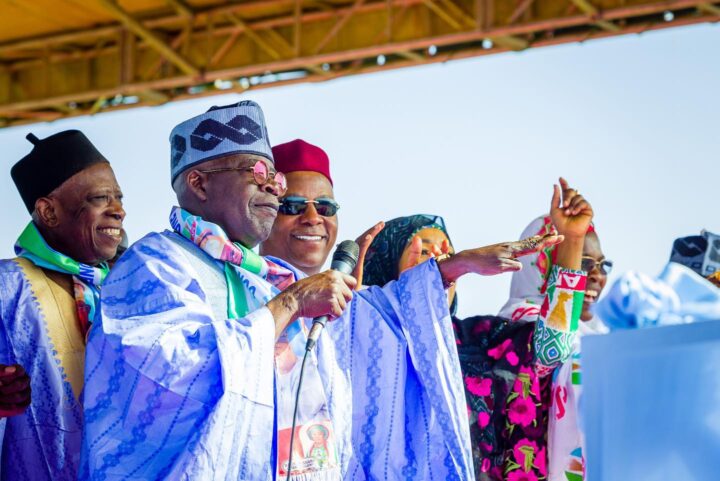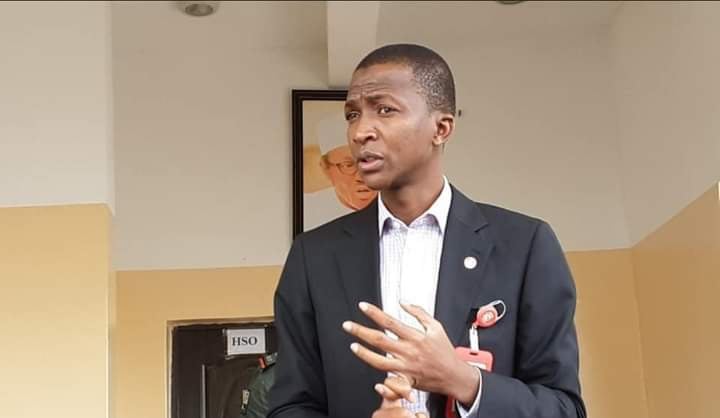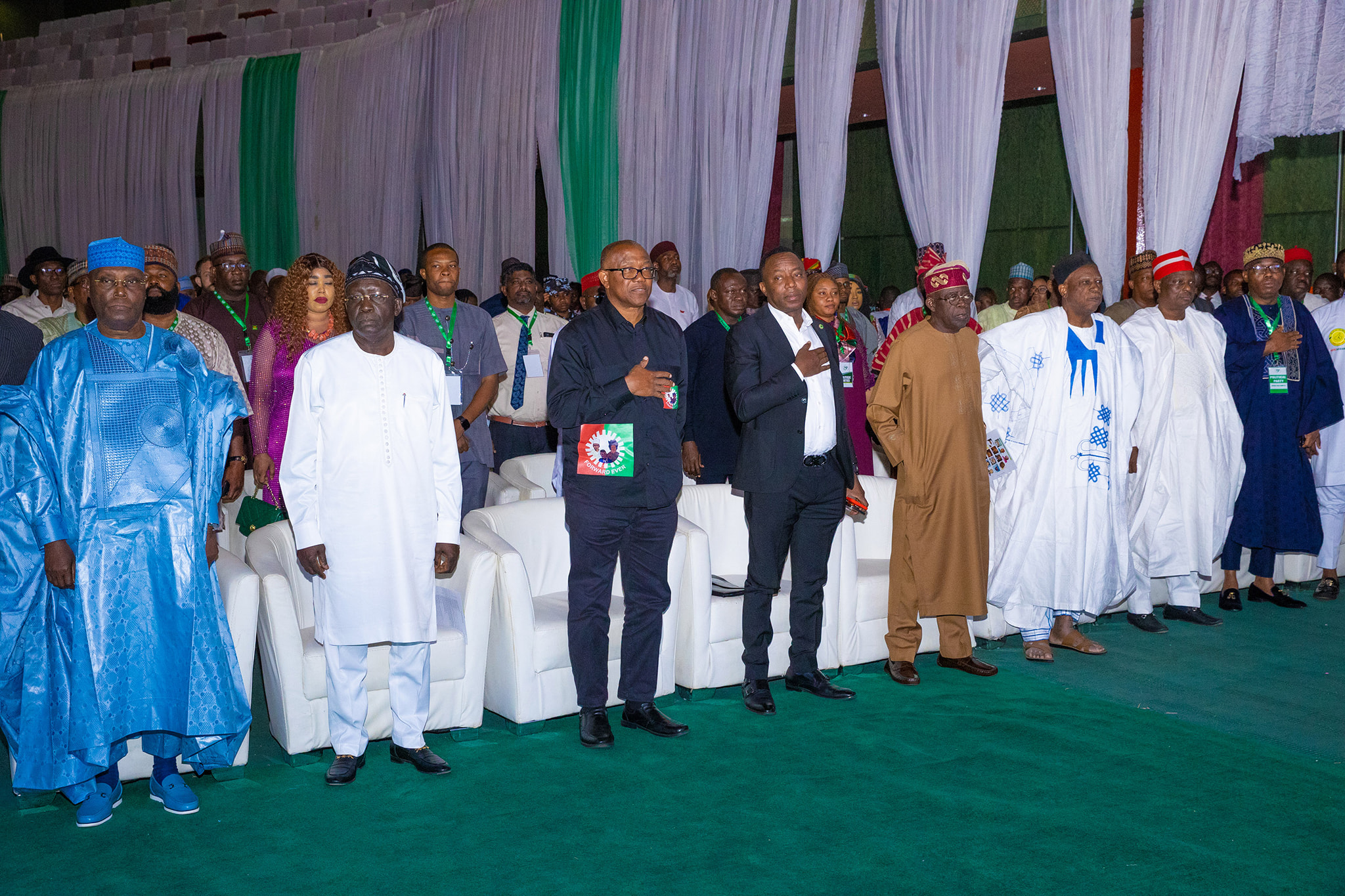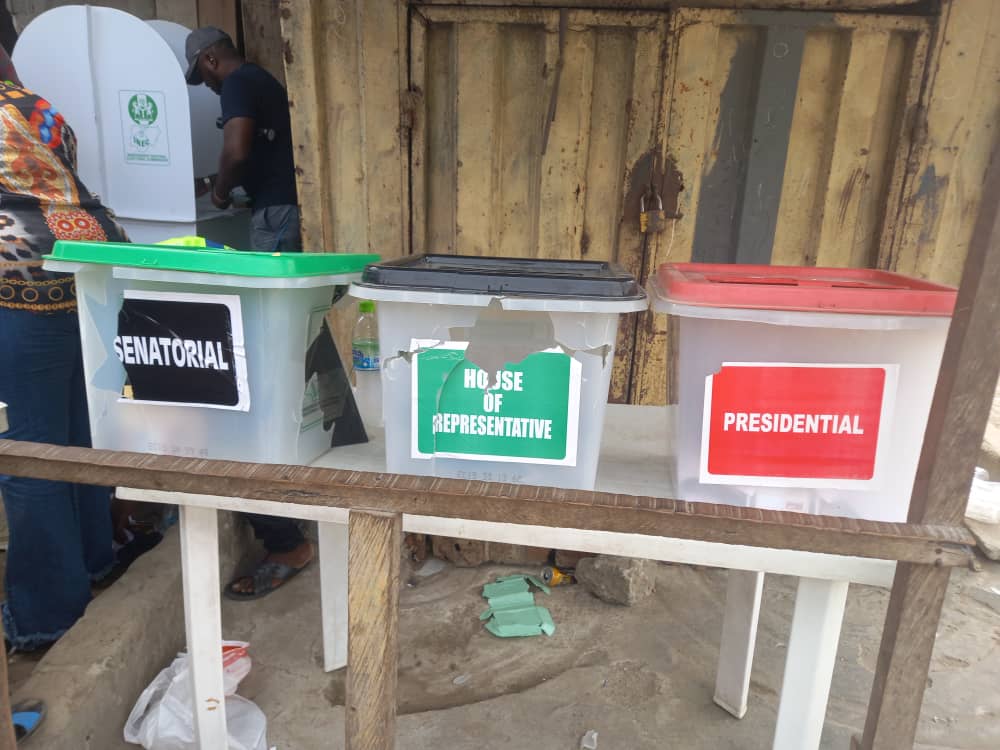BY MUHAMMAD USMAN-SARKI
If the history of the 2023 presidential election is written, the journey that’s brought Asiwaju Bola Ahmed Tinubu and Senator Kashim Shettima this far would be an intriguing subject for political historians. The duo has fought against all odds, defying calculated political conspiracies, campaigns of calumny within and outside the ruling party, and this last-minute economic sabotage that’s failed to produce the intended consequences.
Last June, ahead of the APC presidential primaries, Tinubu mounted the podium in Abeokuta to draw attention to a strategic attempt to scheme him out of the race. What happened next got to prove to those who had undermined him that he didn’t get to this phase of his political life by chance. He worked for this present profile and ambition, and that’s by building a network of committed mentees and investing in structures and relationships that have played to his advantage in this build-up to the election.
As the misguided camp anticipated his loss at Eagle Square, seven aspirants mounted the stage to announce their decisions to step down for Tinubu, and endorsed him as the long-awaited answer for Nigeria. The former governor of Akwa Ibom state, Godswill Akpabio, was the first to throw in the towel, and then came former Ogun state governor, Ibikunle Amosun, and Governor Kayode Fayemi of Ekiti state.
Advertisement
The surprised aspirants who had gathered to watch Tinubu schemed out of the primaries had to witness the praises of the former Lagos state governor from the former speaker of the house of representatives, Dimeji Bankole, Jigawa state governor Muhammad Badaru, Senator Ajayi Boroffice, among others, as they cited Tinubu’s track records in stepping down to support his ambition. It’s unsurprising that he won by a landslide.
But what manifested at Eagle Square began long before the day, and it was, for those who knew the team, not a surprising outcome. Before every opportunist began to jump on the Tinubu train after witnessing his victory, Senator Shettima was a lone ranger marketing his would-be principal’s credentials to Nigerians. While everyone was afraid of taking a side because President Buhari had not made known his preferred candidates, and also because serving and influential office-holders like Vice President Yemi Osinbajo and the minister of transportation, Rotimi Amaechi, were in the race, Senator Shettima took that risk. None of those rushing to identify as Tinubu’s foot soldiers today had the guts to make known their preference until after the primaries.
But, on January 17, 2022, as a keynote address at a support group conference organised by the Support Groups Management Council (SGMC) in honour of Asiwaju Bola Ahmed Tinubu at the International Conference Centre, Abuja, Senator Shettima said what many were afraid to admit. His eloquent speech, which was also beautifully rendered with his fashionably oratorical prowess, is the best defence of Tinubu’s presidential bid to date.
Advertisement
“So much has been said about this political enigma and most of them by hacks with a poor sense of history,” he said in introducing his would-be principal at the event before he began painting an image of Tinubu in a way never done before. He reminded the gathering of how, (e)ven in exile, (Tinubu) provided sanctuaries for fleeing patriots who are still around to testify to his large heart, and that “our younger compatriots must be in the know of Tinubu’s memories from two decades past—when he was a backbone of the opposition and fiercely antagonised and politically ostracised by the then ruling party, the People’s Democratic Party,” and also extolled how Tinubu “built the economic foundations of the modern Lagos State at the time the State was isolated by a vindictive federal government”.
Praising that Tinubu refused to trade his “principles for a place at the table in Abuja during President Olusegun Obasanjo’s era,” he reminded us of the vastness of Tinubu’s investment in political opposition, and giving a political life and platform to even his major challenger in the forthcoming election. “In 2007, (Tinubu) offered his political structure to former Vice President Atiku Abubakar to run for President under the Action Congress (AC) banner. Four years later, he made this structure available for Malam Nuhu Ribadu, and this foresight of the Jagaban Borgu would also set the tone for the 2015 general elections. His place as a fulcrum of the All Progressives Congress re-asserted his essence, and we all owe him a debt of gratitude and deserved loyalty for prioritising principles over personal gains.”
That the beneficiaries of Tinubu’s devotion to building viable political options, Atiku, Ribadu, and Buhari are all northerners isn’t a coincidence. It’s the hallmark of Asiwaju’s pan-Nigerian standing, and Shettima buttressed the point: “Asiwaju’s choices and endorsements of northerners as presidential candidates while others were masterminding ethno-regional solidarity and fuelling socio-cultural affinities readily affirm his pan-Nigerian profile,” he said, and then added that “where others see divisions to exploit, he sees collaborations. Where others chase an easy route to power, he reminds you of Geoffrey Chaucer’s immortal wisdom—that patience is a conquering virtue. And it’s this patience that has brought us together today, to remember the examples he’s set and the debt we owe him”.
When Shettima made this case for the Tinubu presidency, the latter was the subject of fierce media attacks from the opposition threatened by his emergence, and wishing for a political lightweight as APC’s presidential flag-bearer for the 2023 election. Addressing the muddling, he said “the attempts at weaving ridiculous fiction to override the history we’ve all witnessed demonstrate the detractors’ utter desperation and cowardice. One of such is the mischievous fixation on his age and the wild conclusions that he’s physically unsuitable for the Office of the President. This obsession characterises the thinking of those who have no understanding of Asiwaju’s incredible work ethic”.
Advertisement
At this point of the brilliant speech, Senator Shettima pulled brilliant cases from the history book. The stories of distinguished leaders like leader America’s wartime president, Franklin D. Roosevelt, and Kenya’s Mwai Kibaki, one, he said, redeemed “a country wrecked by the Great Depression of the 1930s and guided its economy through the Second World War” and, on the Kenyan, he said “the accident that had Kenya’s Mwai Kibaki confined to a wheelchair didn’t disable his ability to produce sound ideas, and Kenyans were sold on his virtue that they chose him as their President over what some would consider a fitter option”.
While the senator merely underlined those parts of our history to make a case for those who attribute leadership to youthfulness, he has reminded the nation that Asiwaju isn’t only fit but healthier than him. In this gem of a speech, he gave us some of the most quotable lines of this campaign, one of which is viral “the mark of true leadership isn’t the ability to lift a bag of cement. It’s the mental effort to think rationally of solutions designed to redeem one’s people and territorial jurisdiction”.
With Shettima, Tinubu has found the best salesman, one that told Nigerians that “I’m not asking you to tone down critical assessments of your future leaders, but redirect you to see the bigger picture,” and that big picture is the fact that has survived all plots to be weaponised against their ticket, and that “we are not here to prepare for the Olympics, but an institution that relies on the superiority of ideas to thrive”.
That Tinubu and Shettima survived these hurdles can only be divine proof that they have a date with destiny—for only God gives and takes power. That these partisan and envious camps have failed in their defamatory campaigns and propaganda warfare simply means that Nigerian people see through the charade, and the last hurdle before Tinubu and Shettima is for the perceiving people to decide on February 25.
Advertisement
Muhammad Usman-Sarki is a public policy analyst and investment banker based in Abuja.
Advertisement
Views expressed by contributors are strictly personal and not of TheCable.
Add a comment






